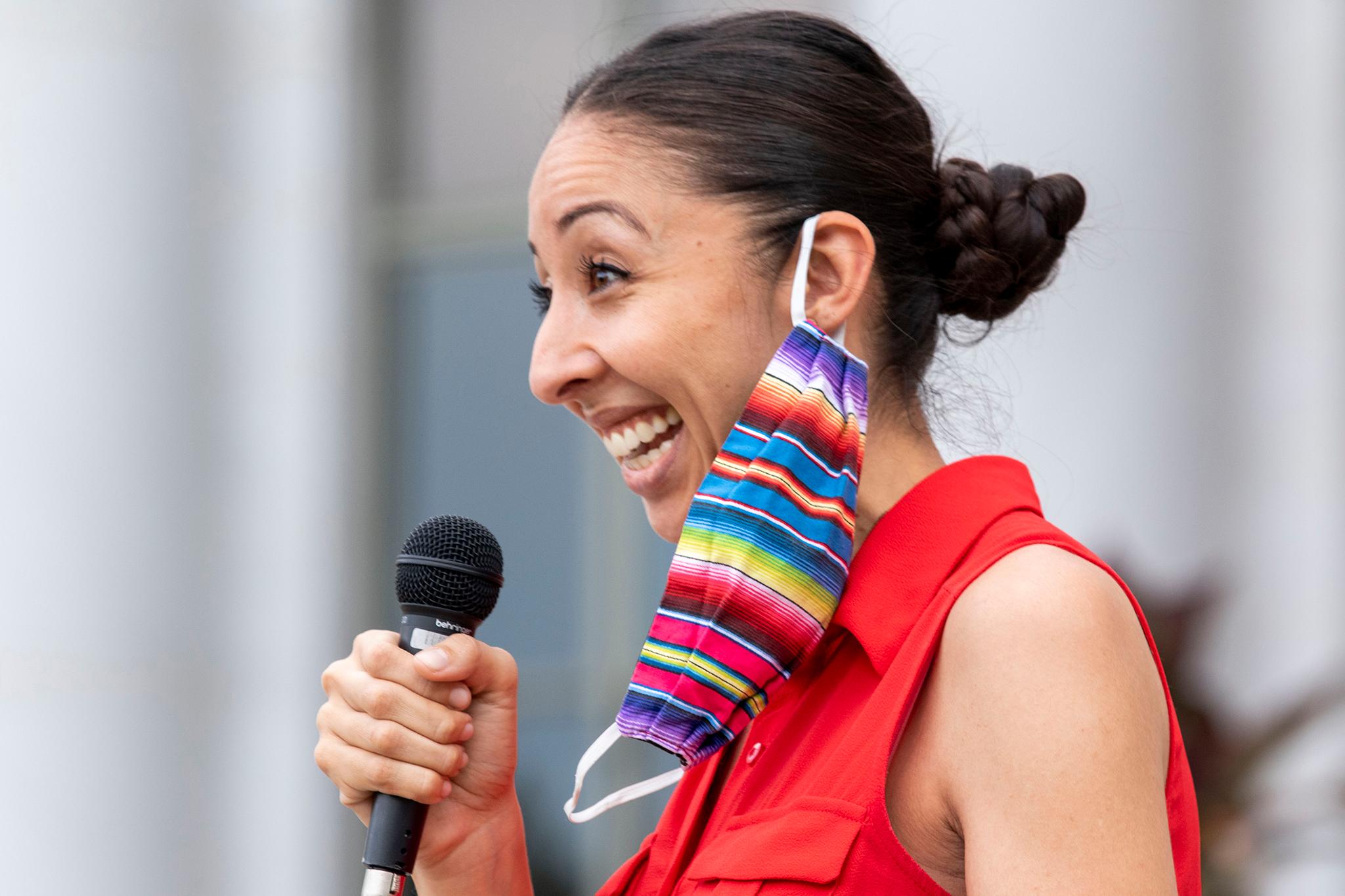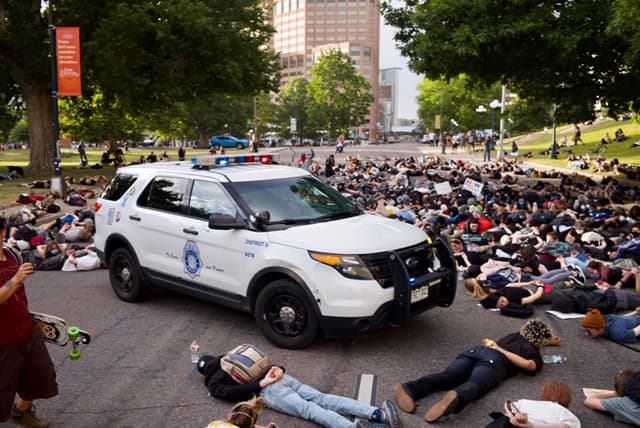Denver City Councilwoman Candi CdeBaca has filed a bill that, if approved by a majority of her fellow legislators, will ask voters in November to replace the city's police department with a "peace force" focused on preventing crime and reducing violence without using force.
The peace force would remove the Denver Police Department from the city charter, according to the draft proposal. Its language reflects demands from protesters who have called to abolish the police department and use the money for social services that treat the root causes of crime.
"As much as I want to claim credit for this, it was not all me," CdeBaca said. "This was all of them with my advice."
A values document filed with Denver City Council on Thursday takes aim at the current system of policing, stating that the Denver Police Department perpetuates "disproportionate policing and violence based upon the color of their skin" and mostly reacts to crime instead of being "proactive" to prevent it.

"This department is charged with responsibility to actively implement strategies to prevent conflict, reduce violence, and strengthen security and is to do so prioritizing a holistic, anti-racist, public health-oriented approach," the proposal states.
Mayor Hancock released a statement about the proposal Friday, calling the idea "reckless and irresponsible."
"City Council should reject it soundly, and the councilwoman should exercise greater transparency and public accountability before putting something of this magnitude forward for a vote again instead of springing it on the public," Hancock said. "I firmly stand by the men and women of our police department and will continue to hold accountable those who step over the line when dealing with the public."
Some council members, including Councilwoman Kendra Black and Councilman Chris Hinds, told Denverite they were frustrated by the lack of communication from CdeBaca's camp about the proposal. They felt blindsided.
"We weren't given the opportunity to read the bill, the opportunity to discuss it, and for something that monumental there should be a huge community process and discussion," Black said. "I find it insulting not only to councilmembers but the people of Denver."
CdeBaca put her bill in front of her fellow legislators via "direct file," a tactic that lets council members send a bill directly to a vote without a committee hearing. The current proposal is only a placeholder that will supposedly get replaced by legally sound language Monday, Stuart said. The city council will vet the bill twice in public starting Monday. If council members choose to advance it, the final vote to put the initiative on the ballot would come a week later.
The potential ballot measure would amend the city charter. Mayor Michael Hancock would not be able to veto the proposal, according to the municipal code, meaning Denver voters would be the sole decider.
Director of Public Safety Murphy Robinson, Denver's top law enforcement official and a member of Mayor Michael Hancock's cabinet, has committed to transforming the city's police department but getting rid of it altogether has never been on the table.
DPD has a few programs aimed at redirecting people toward behavioral health services -- to treat mental health problems, substance abuse and other societal forces -- and away from the criminal justice system. Its co-responder program that pairs social workers with cops and its Support Team Assisted Response program, or STAR, are examples.
Peace department officers would not be armed, the bill states. Peacekeepers would use weapons only after officials, through a triage system, decide that an armed response is warranted.
CdeBaca's proposal also references "a lack of trust" between the community and local police officers and insufficient money dedicated to what she called the "underlying causes of violence and crime" including job insecurity, transience, homelessness and hunger.
This article has been updated.














